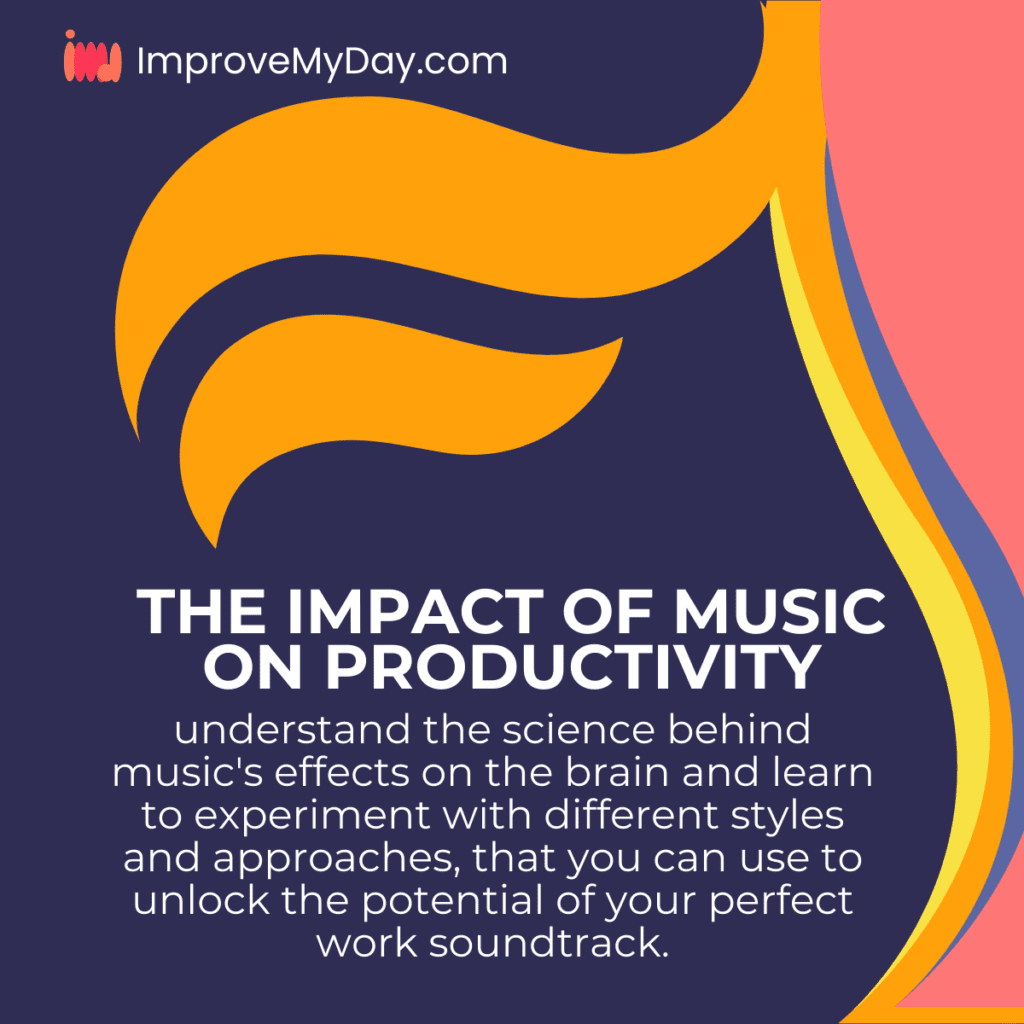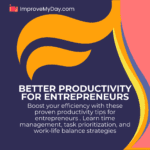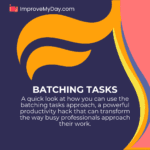In the quest for peak productivity, we often overlook a powerful tool that’s literally at our fingertips: music. The right soundtrack can transform your workday, boosting focus, creativity, and output. But how exactly does music impact productivity, and how can you find the perfect audio accompaniment for your tasks?
The Science of Music and Productivity
To understand how music can supercharge your work performance, we need to dive into the fascinating world of neuroscience and psychology.
The Brain on Music
When you listen to music, it’s not just your ears that perk up. Your entire brain gets involved in a complex neural dance. According to Dr. Daniel Levitin, a neuroscientist and author of “This Is Your Brain on Music,” listening to music engages nearly every area of the brain.
This widespread activation can lead to several productivity-boosting effects:
- Improved mood: Music often triggers the release of dopamine, the “feel-good” neurotransmitter. A positive mood can significantly enhance your motivation and overall work performance.
- Reduced stress: Certain types of music can lower cortisol levels, helping you stay calm and focused under pressure.
- Enhanced cognitive performance: Some studies suggest that music can improve cognitive functions like attention, memory, and problem-solving skills.
The Mozart Effect: Myth or Reality?
You’ve probably heard of the “Mozart Effect” – the idea that listening to classical music, particularly Mozart, can make you smarter. While this concept has been largely debunked in its original form, research does suggest that music can have temporary positive effects on spatial-temporal reasoning.
However, it’s important to note that these effects are often short-lived and vary greatly depending on the individual and the task at hand.
Types of Music and Their Impact on Work Performance
Not all music is created equal when it comes to boosting productivity. Different genres and styles can have varying effects on your work performance.
Classical Music: The Traditional Choice
Classical music, with its complex structures and lack of lyrics, has long been a go-to for productivity enthusiasts. A study published in the journal “Learning and Individual Differences” found that students who listened to classical music during lectures scored higher on quizzes compared to those who didn’t.
Why might this be? Classical music often has a steady tempo and lacks distracting lyrics, allowing your brain to focus on the task at hand while still benefiting from the music’s cognitive-enhancing effects.
Ambient and Nature Sounds: A Soothing Background
For those who find classical music too engaging, ambient sounds or nature recordings might be the perfect alternative. These gentle, non-intrusive sounds can mask distracting background noise while creating a sense of calm and focus.
A study published in the Journal of Consumer Research found that moderate ambient noise (around 70 decibels) can enhance performance on creative tasks. This “optimal” level of ambient sound strikes a balance between overstimulation and under-stimulation, promoting abstract processing and creative thinking.
Electronic and Instrumental Music: The Modern Productivity Soundtrack
In recent years, electronic and instrumental music has gained popularity among productivity enthusiasts. Genres like lo-fi, downtempo, and ambient electronic often feature repetitive beats and melodies without lyrics, providing a rhythmic backdrop for work without pulling focus.
The Power of Familiarity
Interestingly, research suggests that familiar music might be more beneficial for productivity than unfamiliar tunes. When you listen to music you know well, your brain doesn’t have to work as hard to process the audio input, allowing you to focus more on your work.
Choosing the Right Music for Different Tasks
The ideal work soundtrack isn’t one-size-fits-all. The type of music that enhances your productivity can vary depending on the task at hand and your personal preferences.
For Repetitive Tasks: Upbeat and Familiar
When tackling repetitive or mundane tasks, upbeat music with a faster tempo can help maintain energy and motivation. Familiar songs that you enjoy can make the work feel less tedious.
For Creative Work: Ambient or Classical
Creative tasks often benefit from music that enhances mood without being too distracting. Ambient sounds, classical music, or instrumental versions of familiar songs can provide a productive backdrop for brainstorming and creative problem-solving.
For Focused Work: Instrumental or Nature Sounds
When you need to concentrate deeply, lyrics can be distracting. Opt for instrumental music or nature sounds that create a consistent audio environment without pulling your attention away from the task.
For High-Pressure Situations: Calming Melodies
In stressful situations, calming music can help reduce anxiety and improve focus. Slow-tempo classical pieces or ambient tracks can help steady your nerves and clear your mind.
Potential Drawbacks and How to Mitigate Them
While music can be a powerful productivity tool, it’s not without potential pitfalls. Here are some common issues and how to address them:
- Distraction: For some people, any type of music can be distracting. If you find yourself singing along or focusing more on the music than your work, try instrumental tracks or ambient sounds instead.
- Overstimulation: Too much auditory input can lead to cognitive overload. If you feel overwhelmed, lower the volume or take breaks from the music.
- Dependence: Be cautious about becoming too reliant on music for productivity. Practice working in silence occasionally to maintain your ability to focus without audio cues.
- Mood incongruence: If the music doesn’t match your emotional state or the tone of your work, it can be jarring. Be flexible and willing to change your soundtrack as needed.
Best Practices for Using Music to Boost Productivity
To maximize the positive impact of music on your productivity, consider these best practices:
- Experiment and personalize: What works for others might not work for you. Experiment with different genres, tempos, and volumes to find your ideal work soundtrack.
- Create task-specific playlists: Develop different playlists for various types of work to help your brain associate certain music with specific tasks.
- Use noise-canceling headphones: These can help block out distracting environmental sounds and allow you to fully immerse yourself in your chosen audio environment.
- Keep the volume moderate: Excessively loud music can be distracting and potentially harmful to your hearing. Aim for a volume level where the music is present but not overpowering.
- Take breaks: Give your ears and brain occasional breaks from constant audio input. This can help prevent fatigue and maintain the music’s effectiveness.
- Be mindful of your environment: If you work in a shared space, be considerate of others. Use headphones when appropriate and be aware of sound leakage.
Tools and Resources for Creating Your Work Soundtrack
Crafting the perfect work playlist has never been easier, thanks to a variety of digital tools and services. Here are some resources to help you curate your ideal productivity soundtrack:
- Music streaming services: Platforms like Spotify, Apple Music, and YouTube Music offer curated playlists for work and focus, as well as the ability to create your own.
- Focus apps: Applications like Brain.fm, and Noisli provide specially designed sounds and music to enhance concentration and productivity.
- Nature sound generators: Websites like Rainymood.com and Calm.com offer soothing nature sounds that can serve as excellent background noise for work.
- Binaural beats: While scientific evidence is mixed, some people find binaural beats helpful for focus. Apps like Binaural (iOS) and Brainwave Tuner (Android) let you experiment with this technique.
- Productivity timer apps: Tools like the Pomodoro Technique can be combined with music. Apps like Forest and Be Focused integrate timers with the option to play background sounds or music.
Conclusion: Tuning Into Productivity
The impact of music on productivity is a deeply personal and often profound experience. By understanding the science behind music’s effects on the brain and experimenting with different styles and approaches, you can unlock the potential of your perfect work soundtrack.
Remember, the key is to find what works best for you. Whether it’s classical symphonies, ambient electronica, or the gentle sound of rainfall, the right audio environment can transform your workday, enhancing focus, creativity, and overall productivity.
So, put on your headphones, press play, and tune into a more productive you. Your perfect work soundtrack is out there – it’s time to find it.



